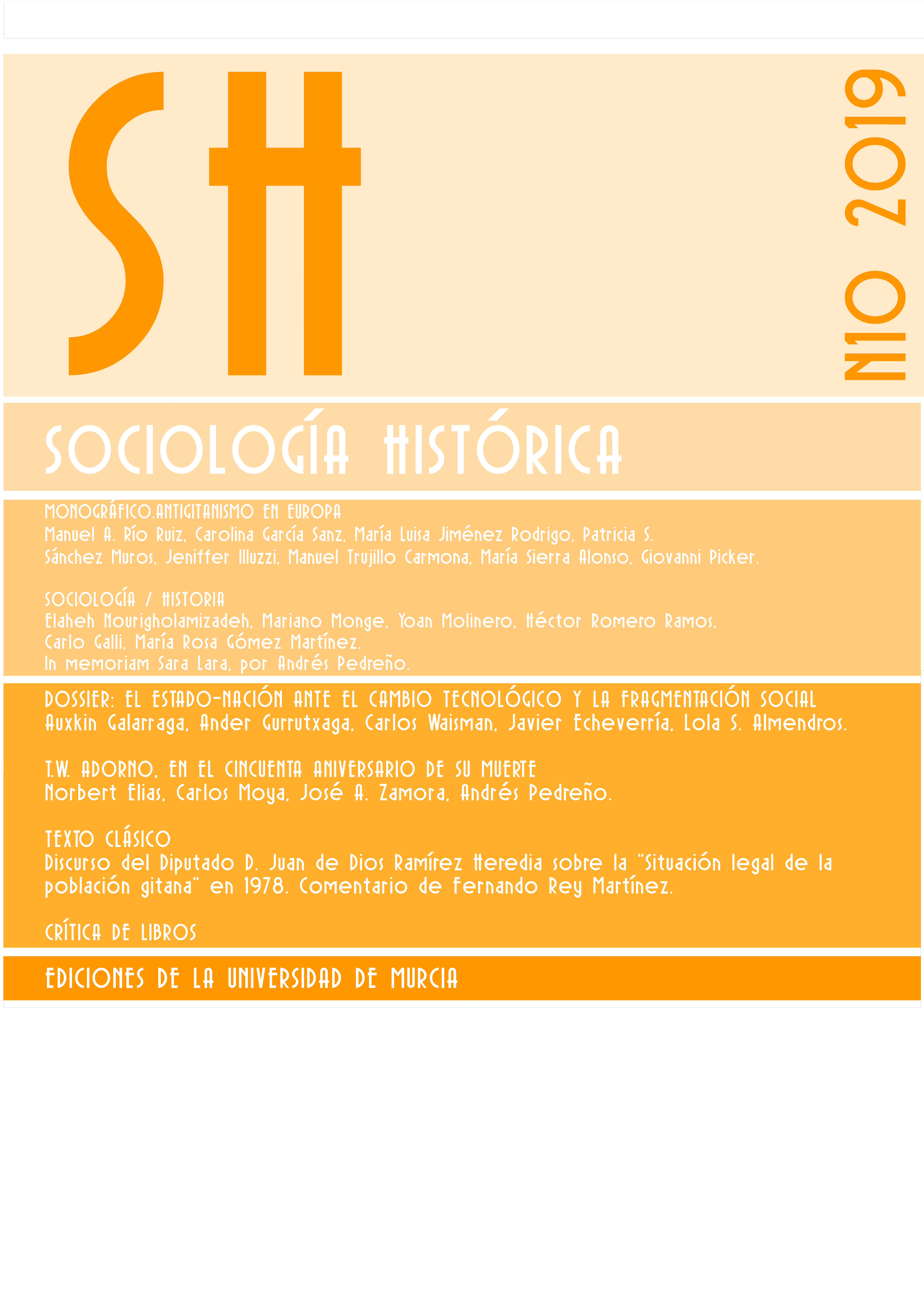Populism of South and North: Incorporation Vs. Social Defense
Abstract
In a large parte of Western and Central Europe, political parties characterized as «populists» are, or are becoming, major competitors for government power. Given this situation, the article intends, on the one hand, to propose a typology of populist institutional regimes or programs, with emphasis on the common properties of the different types. On the other hand, discuss their generative contexts, and propose two propositions: i) that it is very likely that the configuration of factors conducive to populism will become stable in the North and remain recurrent in the South; and, ii) that the probability of more or less permanent institutionalization of these regimes is greater in the South than in the North, due to the differential robustness of the republican political institutions. Ultimately, both capitalism and democratic political institutions will suffer of strong pressures. As a result, together with innovative forms of open market economy and republican democracy, new kinds of state capitalism and elective authoritarianism will be instituzionalized in many countries. If this hypothesis is correct, populist regimes will therefore be only transitional.
Downloads
-
Abstract349
-
pdf (Español (España))275
References
DAHRENDORF, R. (2009): The Modern Social Confict: The Politics fo Liberty. New Yersey: Transactio Publishers.
GIDROM, N. y BONIKOWSKI, B. (2013): «Varieties of Populism: Literature Review and Research Agenda». Weatherhead Center for International Affairs Cambridge. Working Papers Series, 13(4).
LAMBERT, J. (1967). Latin America: Social Structure and Political Institutions. Berkeley: University of California Press.
LEVITSKY, S. Y WAY, L. (2010): Competitive Authoritarianism: Hybrid Regimes after the Cold War Cambridge: Cambridge University Press.
LEWIS, A. (1994). Development Economics in the 50s. San Francisco: ICS Press.
McMILLAN, M. S. y RODRIK, D. (2011): “Globalization, Structural Change and Productivity Growth”, NBER Working Paper # 17143.
MOFFIT, B. (2016): The Global Rise of Populism: Performance, Political Style, and Representation. San Francisco: Stanford University Press.
POLANYI, K. (1957): The Great Transformation: The Political and Economic Origins of Our Time. Boston: Beacon Press.
RODRIK, D. (2007): One Economics, Many Recipes: Globalization, Institutions, and Economic Growth. New Yersey: Princeton University Press.
WAISMAN, C.H. (1987): Reversal of Development in Argentina: Postwar Counterrevolutionary Policies and Their Structural Consequences. New Yersey: Princeton University Press.

This work is licensed under a Creative Commons Attribution-NonCommercial-NoDerivatives 4.0 International License.
Las obras que se publican en esta revista están sujetas a los siguientes términos:
1. El Servicio de Publicaciones de la Universidad de Murcia (la editorial) conserva los derechos patrimoniales (copyright) de las obras publicadas, y favorece y permite la reutilización de las mismas bajo la licencia de uso indicada en el punto 2.
2. Las obras se publican en la edición electrónica de la revista bajo una licencia Creative Commons Reconocimiento-NoComercial-SinObraDerivada 4.0 España (texto legal). Se pueden copiar, usar, difundir, transmitir y exponer públicamente, siempre que: i) se cite la autoría y la fuente original de su publicación (revista, editorial y URL de la obra); ii) no se usen para fines comerciales; iii) se mencione la existencia y especificaciones de esta licencia de uso.
3. Condiciones de auto-archivo. Se permite y se anima a los autores a difundir electrónicamente las versiones pre-print (versión antes de ser evaluada) y/o post-print (versión evaluada y aceptada para su publicación) de sus obras antes de su publicación, ya que favorece su circulación y difusión más temprana y con ello un posible aumento en su citación y alcance entre la comunidad académica. Color RoMEO: verde.










